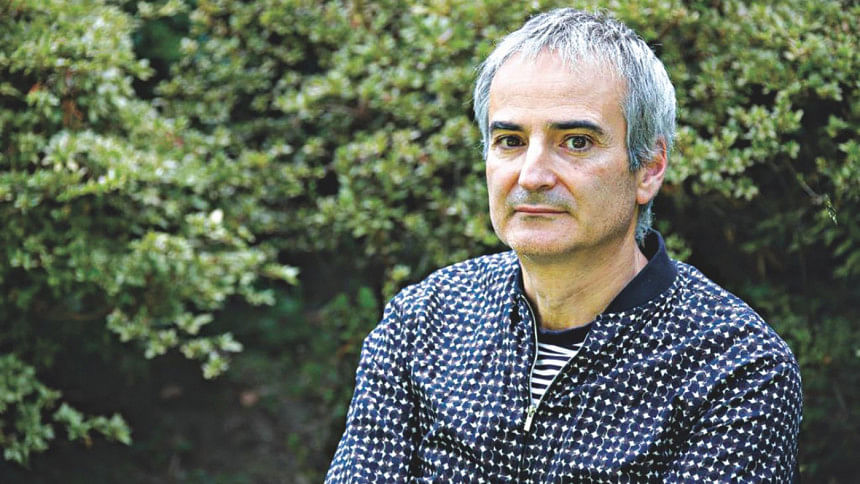OLIVIER ASSAYAS

This year you have come to Locarno as President of the International Jury, playing an important role in the assignment of the final awards. What, if any, are the cinematic coordinates that the 2017 Pardo d'oro-winning film must have?
The rule is that there is no rule. I have neither preconceived idea nor dogma. The beauty of cinema is its diversity, along with its capacity at being both a high and a low art. At generating late masterpieces and early visionary works, I still think it is essential if we are talking film and not industrial fiction to constantly be in touch with cinema's experimental dimensions. I am convinced that the role of independent filmmaking is not to repeat ancient formulae and bow to old theories, old stories and conventional morals, but to explore the infinity of cinema's grammar, being either in search for the purity of its language, or the laboratory for the visual narratives to come. And in that sense, we have to be fiercely singular.
What memories do you have of the last time you sat on the Locarno jury?
Udo Kier blackmailing the festival director into having watches from a sponsor given to all the jury members. I am joking. It was 2004 and we gave the Pardo d'oro to a film by Saverio Costanzo that I liked very much, which was named Private. It was the last time an Italian Film won that prize.
Your films have always been welcomed at many festivals. Given a film market that often grants little visibility to more marginal, off-the-beaten-path works, what significance do you think film festivals still have these days?
I'm not sure I agree with you. Compared to times not so far away, now there is more independent filmmaking visible, especially those coming from more diverse cultures. Thanks must be given to journalists and film festivals, but of course also the progresses in connectedness, and generally speaking, modern globalization. I am impressed by how fast we can become aware of challenging, bold and experimental filmmaking coming from the remotest outposts nowadays. The same would have been very much under the radar at older times. This is a vital dimension of film culture, and the role of festivals is to protect it, and build up on the job they have been doing fairly successfully.
Platforms like Netflix and Amazon have changed the landscape of film production, and particularly distribution. Do you see an opportunity or a treat for arthouse films?
Have they changed the landscape? I may be ill informed but I don't think so. I do not see the issues they generate as radically different from earlier debates about television-financed movies, like for instance Elephant by Gus Van Sant, and the HBO production that was awarded the Palme d'Or in Cannes. I have been involved in such a discussion when I made Carlos, almost fully financed by the French TV channel Canal+. What is TV, what is cinema? As far as I am concerned, the film may be 5 and 1/2 hours, I shot it the same way, with the same crew and the same freedom as my other films. The difference is I had more time, more budget and a material that was visually and dramatically more intense. So was it less of a movie, or more of a movie? Film financing would never have supported a movie as singular as Carlos, for many reasons; length, lack of stars, controversial political issues, multiplicity of languages. I see it as a movie that was made possible by TV financing. I am sure that's how Bong Joon-ho sees Okja. It is a mistake to mix up Netflix and Amazon. Amazon at this stage is another player in film financing. They produced works by Jim Jarmusch or Kenneth Lonergan, and movies had a completely normal film cycle. They premiered in film festivals and were shown in theatres all over the world.
What criteria do you want to see in your actors?
I have no criteria at all except I need to have sense that we speak the same language, in terms of how we relate to cinema as an art form. I also need to feel that a specific actor can bring to the part a dimension that was not necessarily present in my original view of the character. That additional dimension is to me the essence of how life irrigates cinema. In that sense I have filmed indifferently with major movie stars and non-professionals. I don't direct actors. I collaborate with them.
You have a solid grounding in film history. The retrospective dedicated to Jacques Tourner has an important place in the Locarno Festival this year. What contributions has Tourner made to the history of film?
I have always admired Jacques Tourner, who was an exceptional stylist with a deep understanding of the mystery and the poetry of genre filmmaking. His films that have had the most lasting influence on me are Cat People, Out of the Past and Anne of the Indies. On his best days the cartoonish clarity of his style was reminiscent of the genius of Fritz Lang. I must say I am extremely excited to be in Locarno this year and have an opportunity to fill in the blanks in my knowledge of his extraordinary body of work.
Reprinted shortened interview taken by Lorenzo Buccella for PardoLive, the Newsletter for the Locarno Film Festival

 For all latest news, follow The Daily Star's Google News channel.
For all latest news, follow The Daily Star's Google News channel. 




Comments